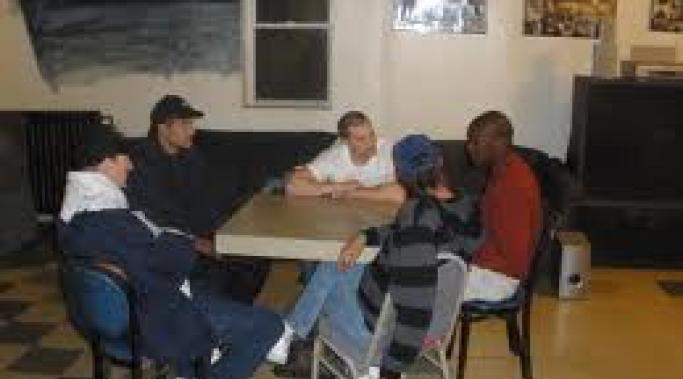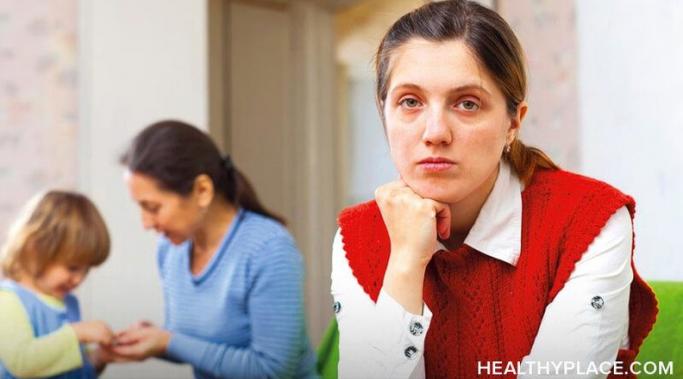This week, I taped an interview with the PBS show To the Contrary, which I hope will make it to the air. The show is in its 20th season, and is billed as "A Discussion of Issues from Diverse Perspectives."
I am thrilled that this show has selected to discuss Ben Behind His Voices, and allow me to share our story with its viewers, along with the messages of understanding, respect, hope, and the need for better services and more research. I'm finding, though, as I work the media circuit, that coverage is very much dependent upon what the interviewer wants to bring out, whether he/she has even read the book, and their personal experiences with mental illness.
Right before we taped this one, the producer shared something with me that I found disturbing, and wonder if you do too.
Mental Illness in the Family
[caption id="attachment_254" align="alignright" width="119" caption="Thomas Insel, NIMH"][/caption]
Let's hope so. Let's hope earlier detection is possible. Why? Because it's essential. At the NAMI Convention in Chicago a few weeks ago, Dr. Thomas Insel of NIMH (National Institute of Mental Health) said that more research dollars are spent on tooth decay than on mental illness. Really? Wow!
Last night my friend called me from the ER of our local hospital. She is where we were eight years ago: son in crisis, mother in heartbreak, son blaming the mother. Oh, yes. I remember it well.
Without dwelling on details that invade my friend's family privacy, I'll sum it up this way. Bipolar. Not taking prescribed meds. Alcohol. Threatened suicide. 911. Rehab desperately needed. Mother hoping. Son, age 26, wavering, now that rehab (which he said he needs) could now become reality.
I write this from Las Vegas. My son Ben has been living at home with us ever since his discharge from the hospital three weeks ago. The last time he lived at home was over seven years ago, when his schizophrenia diagnosis was so new and his rebelliousness so out of control. This time, he is a delight to live with, and wants to be fully cooperative with the "program" we have set up for him - routine, structure, rules, meds. But - for how long? And is this good for him?
Yesterday, I had the pleasure of being interviewed by Armand DiMele, for his radio show on WBAI in NYC, which airs Tuesdays and Wednesdays at 1 PM.
We talked about many things, using my book Ben Behind His Voices: One Family's Journey from the Chaos of Schizophrenia to Hope as a launching pad for advice for families.
What Armand most wanted to cover was the need for early detection (when does "my child is a little bit off" become "this is a possible mental illness"?), the experience of other family members (siblings, spouses, children as well as parents of those with a mental illness), and the need for communication skills and self-care in dealing with our loved ones. He rightly saw our family story as a platform for introducing others in similar situations to the need for things like education (such as NAMI, and of course HealthyPlace.com), support, advocacy, respect and self-care.
Last week, I blogged about some good news: Ben, my son, was discharged from the hospital and is getting his life back. He went back to his job, is taking his meds, signed up for fall college classes, and will begin his outpatient program soon. So - some pieces are in place and that sudden lack of structure that triggered his schizophrenia relapse two months ago is gone.
So far so good. But here's the thing.
I'm a few days late with this post, but with good reason: we've been trying to orchestrate Ben's hospital discharge plans. Yes - after this six-week relapse, he is finally back with us (as of yesterday), in so many ways.
If you've been following this schizophrenia relapse, you know that this had been Ben's first relapse in over six years, and that it was precipitated by a too-quick-and-unguided move from a group home to independent living. Once he went off his meds this time, there was the danger he might not agree to take them again - and that, if he did, they might not work again.
Yet, here we are. I could cry from relief and happiness. For today, we have Ben back.
"Ben is so lucky to have you."
That's what I've been hearing a lot lately - well, from those whom I am not criticizing for shoddy case management.
And, that's a nice compliment for sure - but, in the immortal words of Carrie Bradshaw (Sex in the City): "I couldn't help but wonder...": What about all the people with mental illnesses whose families have given up on them?
My brain is still absorbing all I have learned, ideas I've been introduced to, and the amazing people I met at last week's NAMI National Convention. (read Hold onto the Hope: NAMI National Convention) I'll do my best to share some of this wisdom with you here, as I file these amazing possibilities next to the reality of my son Ben's current relapse.
The nurse on the psych unit where Ben is still a patient calls to inform me that Ben has been in "an incident." My pulse jumps up by about 20 beats - what Dr. Jill Bolte Taylor would say is my amygdala sensing that "I am not safe" - and I ask for details.
"Hold onto the hope and keep moving forward."
Those are the closing words I remember from the last speaker this morning at the NAMI National Convention's education session. All of us in the standing-room-only ballroom were there to honor the various education and support programs that NAMI offers. Consumers, providers, family members and NAMI staffers were invited to offer their stories, and tell how programs like Family-to-Family, NAMI Basics (for families with younger children), In Our Own Voice, Peer-to-Peer and more affected our journeys.
Wow. How we all need education. How we all need each other.









